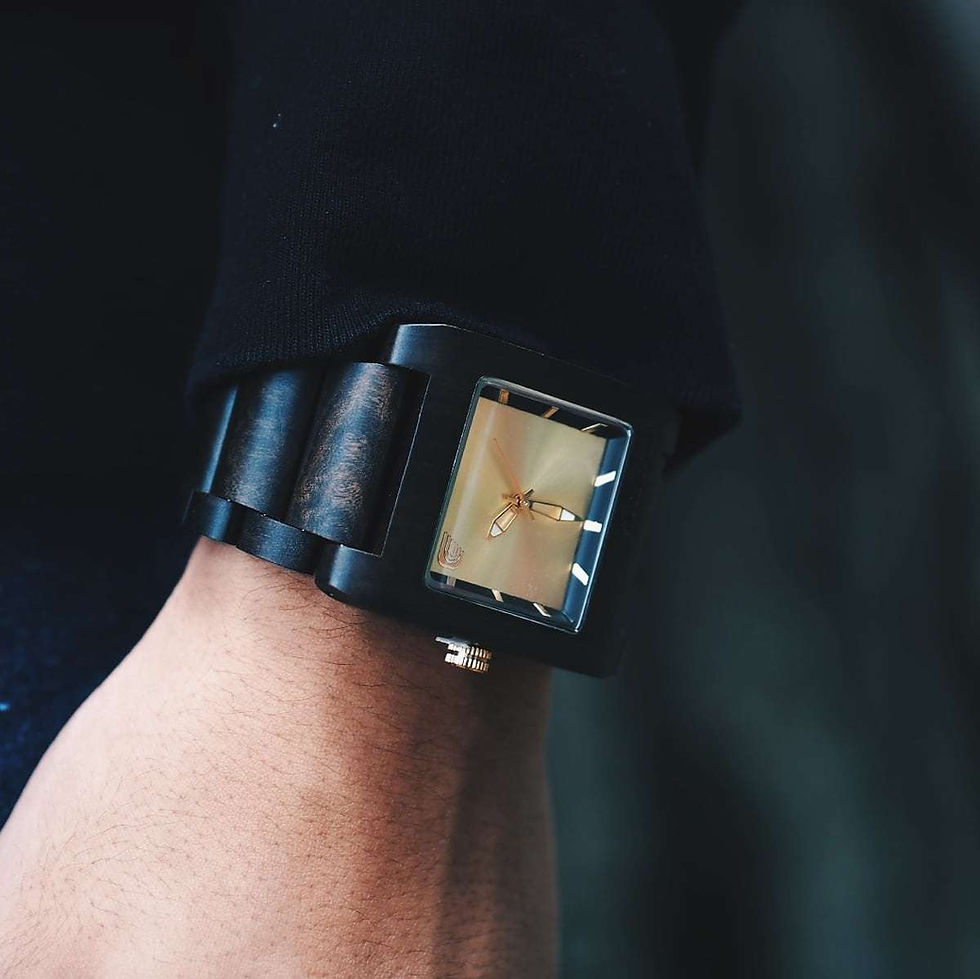brand of the month: The batik boutique
- Sharmila Ganapathy
- Dec 23, 2016
- 4 min read
How a friendship between two women spawned an award-winning social enterprise

“Love is like a batik created from many emotional colors, it is a fabric whose pattern and brightness may vary.” ― Diane Ackerman, A Natural History of Love.
There are many kinds and levels of love, as the above quote suggests, and the same applies to friendship. Rarely however, does an unlikely friendship birth a business, but such was the case for The Batik Boutique (TBB), a Kuala Lumpur-based social enterprise that empowers underprivileged women.
The early days
“Ana, a single mom, lived in the government-subsidised PPR flats and was teaching me the local language (Bahasa Melayu) and helping part-time with childcare, cooking and cleaning. One afternoon, we were speaking in Bahasa over coffee and Ana shared how her parents needed $60 a month for medicine they could ill afford,” shared Amy Blair, founder and chief executive officer of The Batik Boutique.
At the time, Ana was struggling to support her two kids on her own without full-time work, and didn’t have anyone else to turn to. That afternoon, the two women brainstormed how Ana could earn that extra money for her parents.
Blair, who had a background in tourism, had noticed a gap in the market for quality Malaysian-made batik products. Together, the two decided that Ana could sew batik products for Amy and others to purchase as gifts.
“As I continued to work with Ana, I learned of other Malaysian women in the government flats that were struggling to feed their families. Some of their children would not go to school because they did not have enough food. As a mother myself, I shared this burden. And I understood what it was like to live from month to month, and to not always have enough because this is also how I grew up,” Blair said. (Read more about the seamstresses here.)
Supporting local craftswomen
This was how TBB was born; the social enterprise today has an online store, as well as a studio-cum-boutique in Desa Sri Hartamas, which is a short drive from the Kuala Lumpur city centre.
Besides their online store, TBB’s products are also carried by consignment stores such as those at the Petronas Twin Towers and the Islamic Arts Museum Malaysia in Kuala Lumpur.
Internationally, TBB’s batik products are carried by renowned American ethical fashion brand Raven + Lily and are available on the latter’s website.
“We design and source hand-made batik fabric from family-run businesses in rural Malaysia. This fabric is then sent to women at the sewing training centre, who transform it into unique, hand-made gifts. Each seamstress comes to the sewing centre with varying skill levels which are further developed through provided training programs, at no cost to these women. Once crafted, TBB markets and sells the products to customers to provide income for the women,” Blair explained, adding that they work with a local non-governmental organisation to recruit seamstresses for the sewing training centre.
According to Blair, more than 50 women work with TBB, each of whom is paid a salary that is almost double the minimum wage in Malaysia. The seamstresses are also allowed to set their own working hours and are given moral support to pursue their goals, even if they are not related to their work at TBB.
“It’s important to us that they get to do what interests them, for us to empower them individually. For example, one of our seamstresses wanted to learn pattern-making, so we sent her for training so she can someday set up her own business,” Blair said.
Blair shared that a portion of TBB’s proceeds are re-invested into the local community, providing childcare, financial literacy and continuing education for those who need them.
Making an impact
The efforts of Blair and her team at TBB have not gone unnoticed. Last year, TBB won the MaGIC Amplify Award for Social Enterprises. “Winning the Amplify Award was a huge honour and stepping stone for our company. With the prize money awarded, we were able to hire and train more artisans, and we saw our revenue double in one year’s time,” Blair said.
Apart from making a social impact, TBB is also working on being more environmentally-friendly, Blair said. Their Eco-Collection for instance, uses natural dyes and processes that are not harmful to the environment. For example, the yellow and grey silk scarves from this collection are dyed with turmeric and mangosteen.
“The clothing industry is the second largest polluter in the world; second only to oil. Therefore, we have a responsibility to improve in our production processes and consider the planet for the generations to come.”
According to Blair, TBB this year doubled its staff and revenue and is in the process of relocating to a larger sewing centre with more capacity. “The better the company performs, the more women we can provide marketable skills to and empowerment,” she added.
Reflecting on 2016, Blair shared that this year, TBB worked with over 75 artisans, trained 25 women in sewing skills and produced over 18,000 Malaysian-made products purchased both in Malaysia and internationally.
“2017 will continue to be a year of scaling, diversifying our product range especially in the corporate gifts sector, and creating more sustainable long-term impact for artisans in Malaysia,” she concluded.




Comments